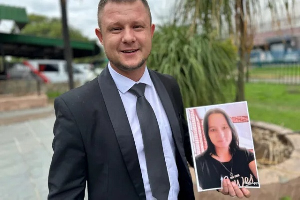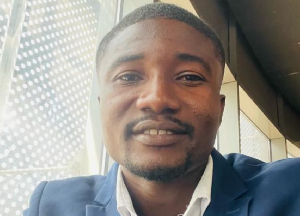Joe Appiah from Gold Coast (now Ghana), the first Ghanaian to marry (Lady Peggy Cripps) from the British Empire`s Upper class.
Early Life
Mr. Joe Appiah, born Joseph Emmanuel Appiah on Nov. 16, 1918 in Kumasi, was known as Joe in politics and used the shorter name as the author of several books.
He was a Ghanaian lawyer, politician and statesman born in Kumasi to Nana James Appiah and Nana Adwoa Akyaa, members of the Ashanti imperial aristocracy.
His father was a schoolmaster, Methodist leader, traditional nobleman and, finally, Chief Secretary of Asanteman, a position his son would also subsequently occupy.
Joe Appiah was educated at Wesley College, Mfantsipim, and the Middle Temple.
Marriage Life
In 1951, Joe Appiah met Lady Peggy Cripps at a student dance. She was the daughter of the Right Honourable Sir Stafford Cripps and Dame Isobel Cripps.
She was born on May 21 1921. Peggy Cripps was then working for an organisation called racial unity, after having lived in Moscow, where her father was a British ambassador, and in Tehran, where she worked for the British army (railways).
In 1953 in London, Mr. Appiah, a law student from a prominent Ashanti family in what is now Ghana, married Peggy Cripps.
It was then unheard of that an African will dare to marry a white lady from the British upper class family.
When it was announced that the 32-year-old Peggy was to marry a black man, every Colonel Blimp in the Empire was horrified.
Disgusting! That was how the apartheid South African minister of justice, Charles Swart described the marriage between Joe Appiah and Peggy Cripps.
During that period in Britain, interracial marriages were largely absent and a white girl who was seen out with a black man was deemed not “respectable”.
It was reported that Kwame Nkrumah (who would later be Ghana’s first president) was supposed to be Appiah’s best man, but George Padmore, the Pan-Africanist, journalist and author took up that role.
At the Church of England ceremony, the bride wore a gown of mother of pearl-embroidered silk brocade.
The bridegroom, a Methodist, wore a tribal ceremonial garment – similar to a toga – of yellow and green striped silk.
This sensational love affair inspired the 1967 Hollywood comedy-drama movie “Guess who’s Coming to Dinner ” starring Spencer Tracy, Sidney Poitier and Katharine Hepburn, and featuring Hepburn’s niece Katharine Houghton.
Return to Gold Coast

Joe Appiah,Peggy and their four kids
Their firstborn child, Prof Anthony Kwame Appiah (now world renowned Professor of philosophy and co-author of Encyclopedia Africana ), was born in London in 1954, followed by three daughters.
The Appiah family returned to Ghana in late 1954. Soon after, Joe Appiah’s friendship with Nkrumah was ruined.
Mr. Appiah was for several years the personal representative in London of the Ghanaian leader, Kwame Nkrumah, during the campaign for independence of what was then the Gold Coast. It became independent from Britain as Ghana in 1957.
But Mr. Appiah broke with Mr. Nkrumah and became prominent in the West African nation’s political opposition.
He was a member of the Ghanaian Parliament when he was arrested and detained, under the Preventive Detention Act, in 1961 and 1962.
He joined the National Liberation Movement party and won the Atwima-Amansie seat in 1957.
From 1970 to 1972 he was chairman of a new opposition party, the Justice Party, formed in 1970 through the merger of the country’s three opposition parties.
At that time, he was also president of the Ghana Bar Association.
Under later national leaderships, He went on to become Ghana’s representative at the United Nations in 1977 and 1978 and held other official posts.
Works of Peggy
Meanwhile, Peggy learned the language of the Asante, Twi, and became conversant with their folklore which influenced her to write several books such as Yao and the Python.
(1971); The Children of Ananse (1968); Why There Are So Many Roads (1972); Ananse the Spider: Tales from an Ashanti Village (1966); Kyekyekulee, Grandmother’s Tales (1993) and The Lost Earring (1971).
Her last major work was a collection of 7,000 Asante proverbs entitled Bu Me Be (Tell Me a Proverb) which she co-authored with her son Kwame, and Ivor Agyemang-Duah, currently information officer at the Ghana high commission in London.
At the same time as immersing herself in Asante art and culture, Peggy Cripps became a philanthropic figure in Kumasi and founded, with the assistance of her children, a school for the disabled at Jachie. She also contributed to the education of many children in Kumasi.
Death
Joe Appiah died in Accra after an illness and was buried at the Tafo cemetery at Kumasi in the Ashanti Region of Ghana July 8, 1990.
Peggy Cripps bought a plot at Tafo cemetery in Kumasi, so that when she died, she would not be sent back to England, but be buried next to her husband, who died in 1990. She died in February 11, 2006.
General News of Saturday, 25 January 2020
Source: ghanaianmuseum.com













